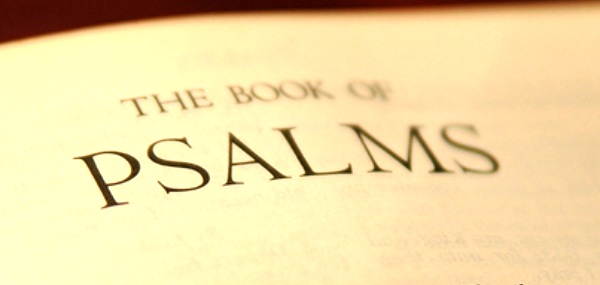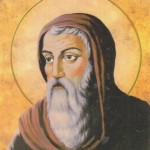“Singing Psalms is medicine for healing the soul” St. Athanasius If you open the Bible right in the middle you will find the book of Psalms. In fact, the middle chapter in the whole Bible is Psalm 118. The longest chapter in the Bible is Psalm 119 and the shortest chapter in the Bible is …
“Singing Psalms is medicine for
healing the soul” St. Athanasius
If you open the Bible right in the middle you will find the book of Psalms. In fact, the middle chapter in the whole Bible is Psalm 118. The longest chapter in the Bible is Psalm 119 and the shortest chapter in the Bible is Psalm 117. If you attend any Orthodox service, whether it is Vespers, Liturgy, Marriage ceremony, you name it; you will no doubt hear a portion of a Psalm being read. Try opening a page of the Coptic Orthodox Prayer book (Agpia) – you will most definitely fall on a page that contains a Psalm. The Psalms are so important that Monks are required to recite them daily. I still remember as a child in Sunday school always being offered prizes if I could memorise a Psalm. So, what is so special about this Holy book of Psalms that takes its place as the centre of Orthodox worship? (Or as one Orthodox Bishop put it: “It is the golden thread that runs through the beautiful garment of Orthodox worship”)
To put it simply, the Psalms are so unique and special because they express in divinely inspired language the innermost thoughts and fears of humanity. And this was ultimately and no better expressed than when our Lord and Saviour Jesus Christ Himself quoted the Psalms when hanging on the cross on Golgotha.
In addition to inspiring the public prayer of the Orthodox Church, the Psalms are an indispensible part of the private devotions of all who seek a closer relationship with God. It is for this reason that the Coptic Orthodox Church has tirelessly encouraged its faithful to pray and memorise the Psalms. When St. Benedict of Nursia, in the sixth century, prescribed the weekly reciting of the psalms to his monks as the barest monastic minimum, he lamented the inability of his monks to perform this task daily, as was being practiced by the Coptic Monks in the deserts of Egypt.
The majority of the Psalms were written by the ‘sweet singer of Israel’ King David the Prophet. Twenty four psalms are ascribed to Asaph (perhaps a title of various chief musicians), and to the sons of Korah (a family of official doorkeepers and musicians), as well as to Heman and Ethan. These psalms are properly classed together since their authors were associated with the service of song which David established. In addition to this Moses, may have written Psalms 90 and 100 as well as one or two psalms may have been written by Solomon.
If you want to talk to God, if you want to praise God, if you want to thank God, if you want to worship God, if you want to complain to God, and even if you want to return to God after sin, then the Psalms provide the divinely inspired words and the spirit to do so. William S. Plumer says, “(The psalms) have been read, repeated, chanted, sung, studied, wept over, rejoiced in, expounded, loved and praised by God’s people for thousands of years.”
Life in the 21st century is travelling at a million miles an hour. Everyone is so busy trying to balance their commitments to their family, to their friends, to their service and to their demanding career, while prayer and meditation is pushed to the final moments in an exhausting day. Our souls are in need of desperate healing. St. Athanasius said: “Singing Psalms is medicine for healing the soul”.
May we use this divinely inspired language to revive our prayer life, may we memorise the psalms so that we might recite them throughout our busy days to provide healing to our souls. I will leave you with a famous quote that was said by my Pope Shenouda: “Keep the psalms in your heart, and they will keep you”
Join Us: Sign Up Today!
Tags:












